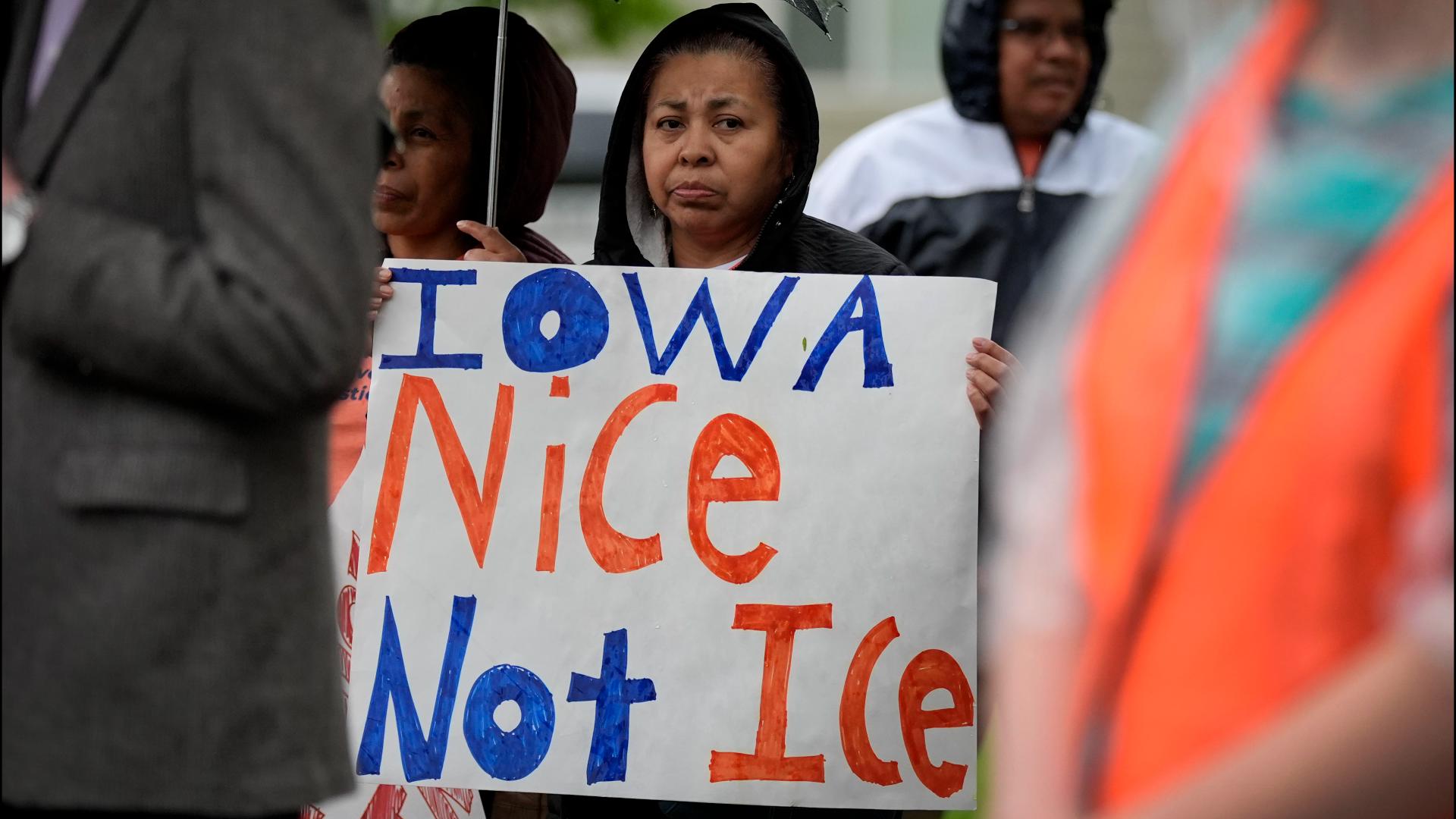DES MOINES, Iowa — Civil rights and immigrant rights groups filed a lawsuit on Thursday alleging that Iowa's new law making it a crime to be in the state if previously denied admission to the U.S. is unconstitutional.
It’s the first legal action taken against Iowa in response to the law, though the U.S. Department of Justice warned the state's top officials last week that the agency would sue unless they agreed not to enforce it.
The complaint filed Thursday alleges that the new statute steps on the federal government’s authority to enforce immigration law. The case is similar to a more expansive Texas law that has been challenged by both the Justice Department and civil rights groups.
Iowa Attorney General Brenna Bird said Friday that the state would not back down.
Following the announcement of the lawsuit, Bird issued a statement saying: "When Biden fails to do his job and secure our border, States have to take matters into their own hands. Iowa’s law is not unique; it simply enforces immigration laws while Biden refuses to. Iowa stands ready to defend our immigration law that keeps Iowa communities safe.”
The American Civil Liberties Union of Iowa and the American Immigration Council filed the suit Thursday on behalf of the Iowa Migrant Movement for Justice and two individual Iowans.
The Iowa law has increased fear among immigrant communities in the state that enforcement would lead to racial and ethnic profiling, complicate interactions with police or dissuade community members from reporting crime. Activist and advocacy groups, including one named in the suit, have hosted gatherings to try to answer people’s questions and organized protests in response.
"It is truly impossible to overstate how terrible this law is, how poorly written it is, how bizarre it is and how extreme it is," said Rita Bettis Austen, legal director ACLU of Iowa.
Two anonymous plaintiffs listed on the lawsuit could be directly impacted by this law.
The first plaintiff is a 68-year-old grandmother, who has 5 kids and grandkids in Iowa. She also has a green card.
"She was deported to Mexico in 2005 and waited 17 years to be able to come back to the United States, lawfully, where her family resides, and she is under great stress and anxiety not knowing if she's going to be prosecuted under this law," said Kate Melloy Goettel, senior legal director of American Immigration Council.
The second plaintiff is an 18-year-old girl and green card holder who is in Iowa finishing high school.
"This is impacting Iowans who are actively here with green cards, living here lawfully and who have returned to the United States with federal authorization," Goettel said.
Additionally, the plaintiffs claim this law actively discourages victims of domestic violence from calling police for help.
Polk County Attorney, Kimberly Graham, who is a defendant on the lawsuit, issued a statement saying:
"It was for procedural reasons and not because of any actions taken by me or the Polk County Attorney’s Office. Consequently, we will not actively participate in this lawsuit or spend the money of the people of Polk County defending this action. We will, of course, comply with any orders or rulings issued by the Court."
Police chiefs in Iowa have shared concerns about the legislation's enforcement.
Texas was allowed to enforce the law for only a few confusing hours in March before it was put on hold by a federal appeals court’s three-judge panel. The panel heard arguments by both supporters and opponents in April, and will next issue a decision on the law’s constitutionality.
Some law enforcement officials and legal experts have said unanswered questions remain about how the laws in Iowa and Texas would be implemented, since enforcement of immigration law has historically fallen to the federal government and is a binational process.
The Iowa law, which goes into effect on July 1, would allow criminal charges to be brought against people who have outstanding deportation orders or who previously have been removed from or denied admission to the U.S. Once in custody, migrants could either agree to a judge’s order to leave the U.S. or be prosecuted.
In Iowa and across the country, Republican leaders accuse Democratic President Joe Biden of failing to manage the influx of migrants at the U.S.-Mexico border.
“The only reason we had to pass this law is because the Biden Administration refuses to enforce the laws already on the books,” Reynolds said in a statement Friday.

